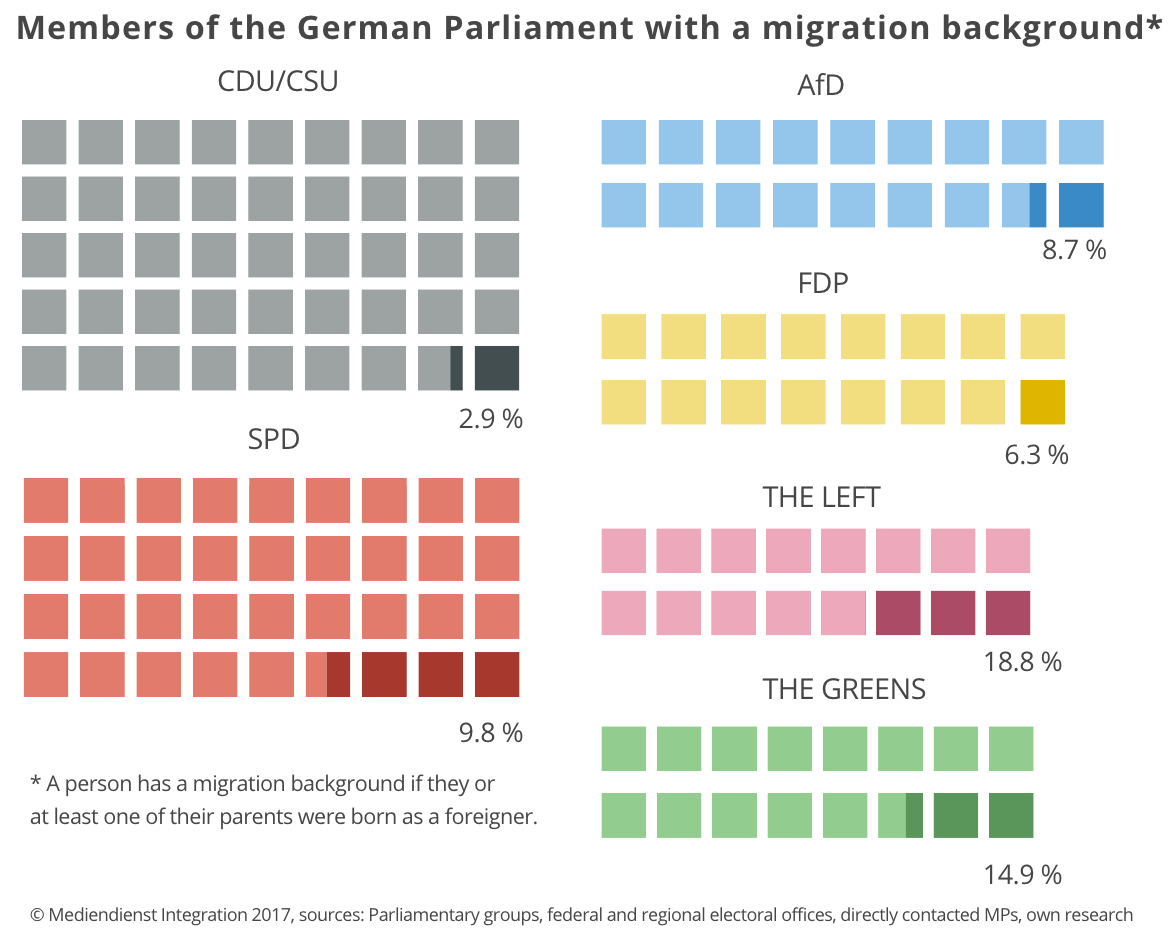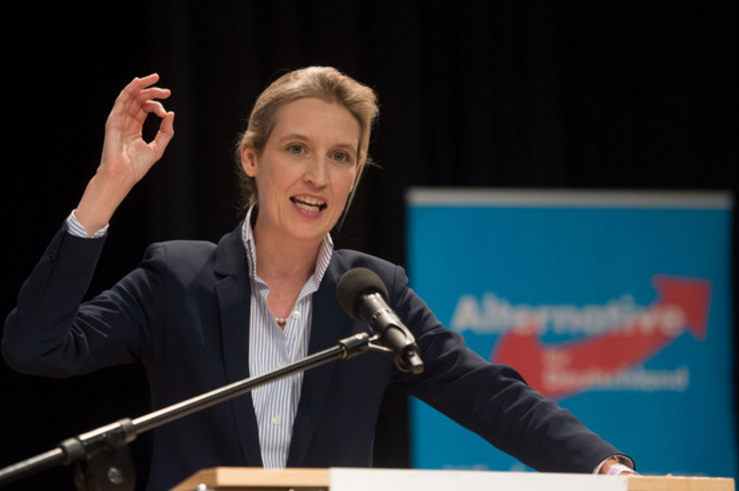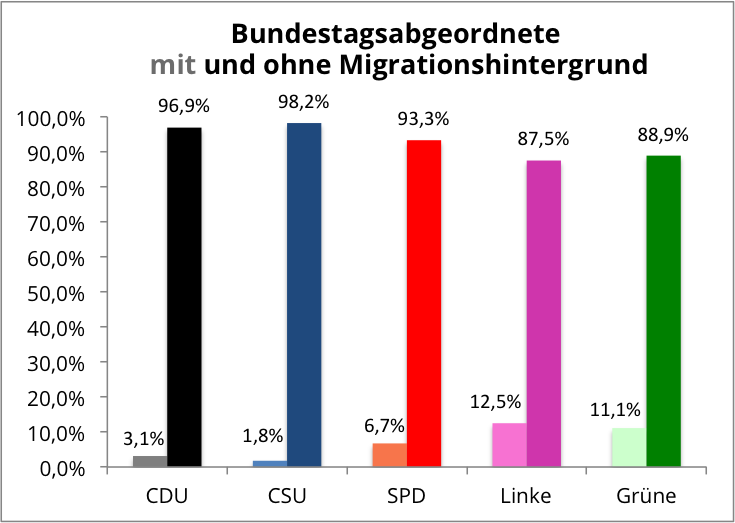According to election results the Bundestag will have 709 members. Research of the MEDIENDIENST shows that 58 MPs have a so-called migration background. The term migration background was created for statistical purposes in Germany. A person has a migrant background if the person or at least one parent was born as a foreigner.
Rate of members with migrant background in the parliamentary groups:
-
The Left : 18.8 percent
-
The Greens : 14.9 percent
-
Social Democratic Party (SPD ): 9.8 percent
-
Alternative for Germany (AfD ): 8.7 percent
-
Free Democratic Party (FDP ): 6.3 percent
-
Christian Democratic Union/Christian Social Union (CDU/CSU ): 2.9 percent.
The MEDIENDIENST makes no claim that their list of members of the German Parliament with a migration background is complete. The detailed results (in German) can be found here.
More than one third of all MPs with a migrant background have their roots in countries of the European Union. The number of members of Parliament with Turkish migrant background has grown from eleven to 14. North Rhine-Westphalia is sending 14 members with migrant background, followed by Baden-Württemberg with 13 MPs and Lower Saxony with 8 MPs.
Comparison to the 2013 election
The Left and the Greens had the highest percentage of members with migrant background in the last Bundestag, followed by the SPD. The CDU/CSU came last. All in all, the rate of members of Parliament with migrant background grew from 5.9 percent in 2013 to 8.2 percent in 2017.
The number of MPs with a migrant background had already increased significantly from 2009 to 2013. In 2009 only 21 members of Parliament had a migrant background. In 2013 there were already 37. However, persons with migrant background are still underrepresented in the German Parliament. 22.5 percent of the German population were born or have at least one parent born as a foreigner.
About the research
The MEDIENDIENST asked parliamentary groups, federal and regional electoral offices as regarding the number of candidates with a migrant background. As a whole parties don’t keep a record of migrant backgrounds. Thus, most of the press offices of the parties weren’t able or willing to share that information. For recently elected members of Parliament the MEDIENDIENST took into account websites, speeches, interviews and other media coverage. In cases of uncertainty the new MPs were contacted directly.
Updated: 24th October 2017
By Lea Hoffmann and Fabio Ghelli
Translation by Felix Böhmer and Robert Zenker


